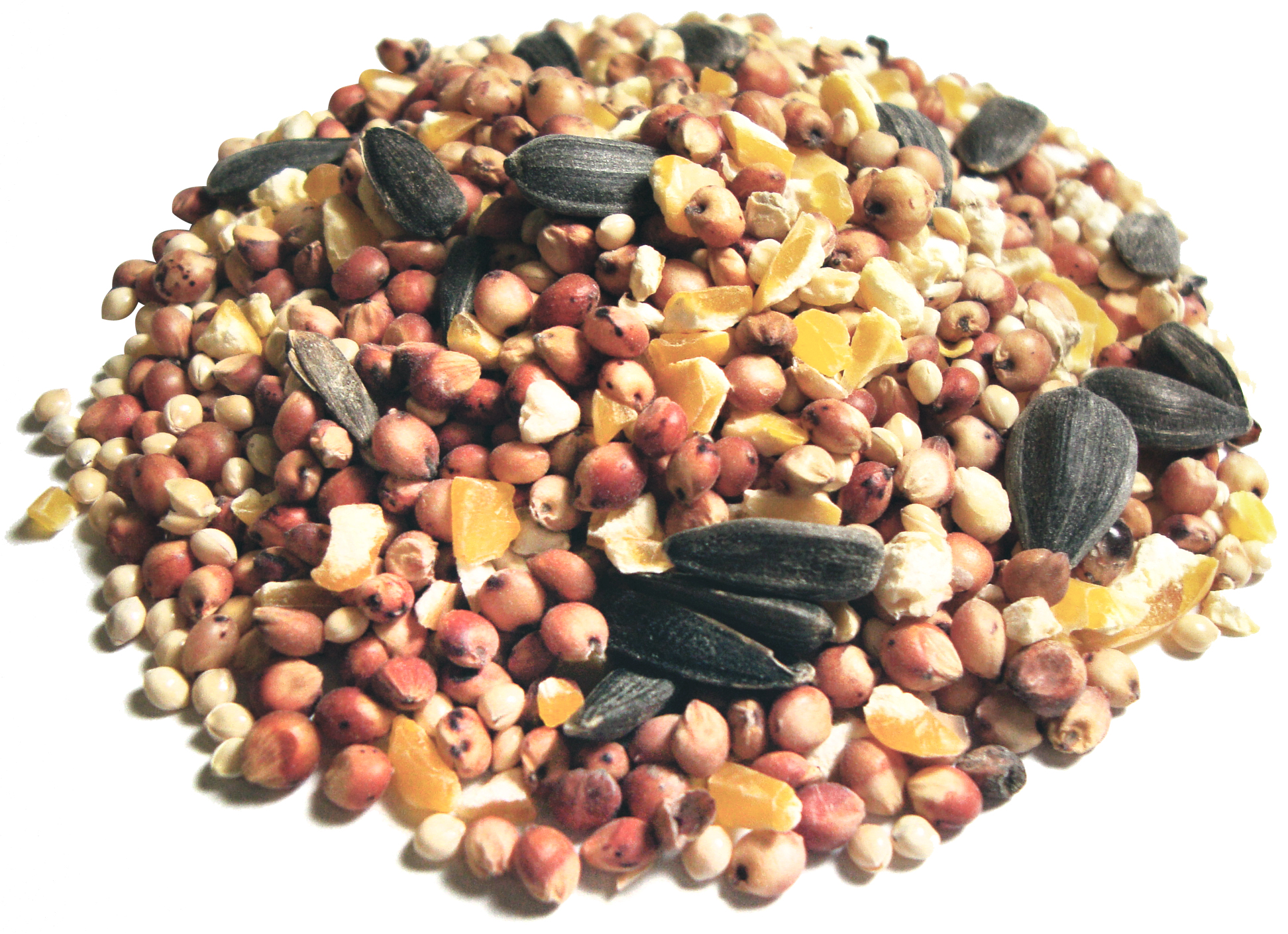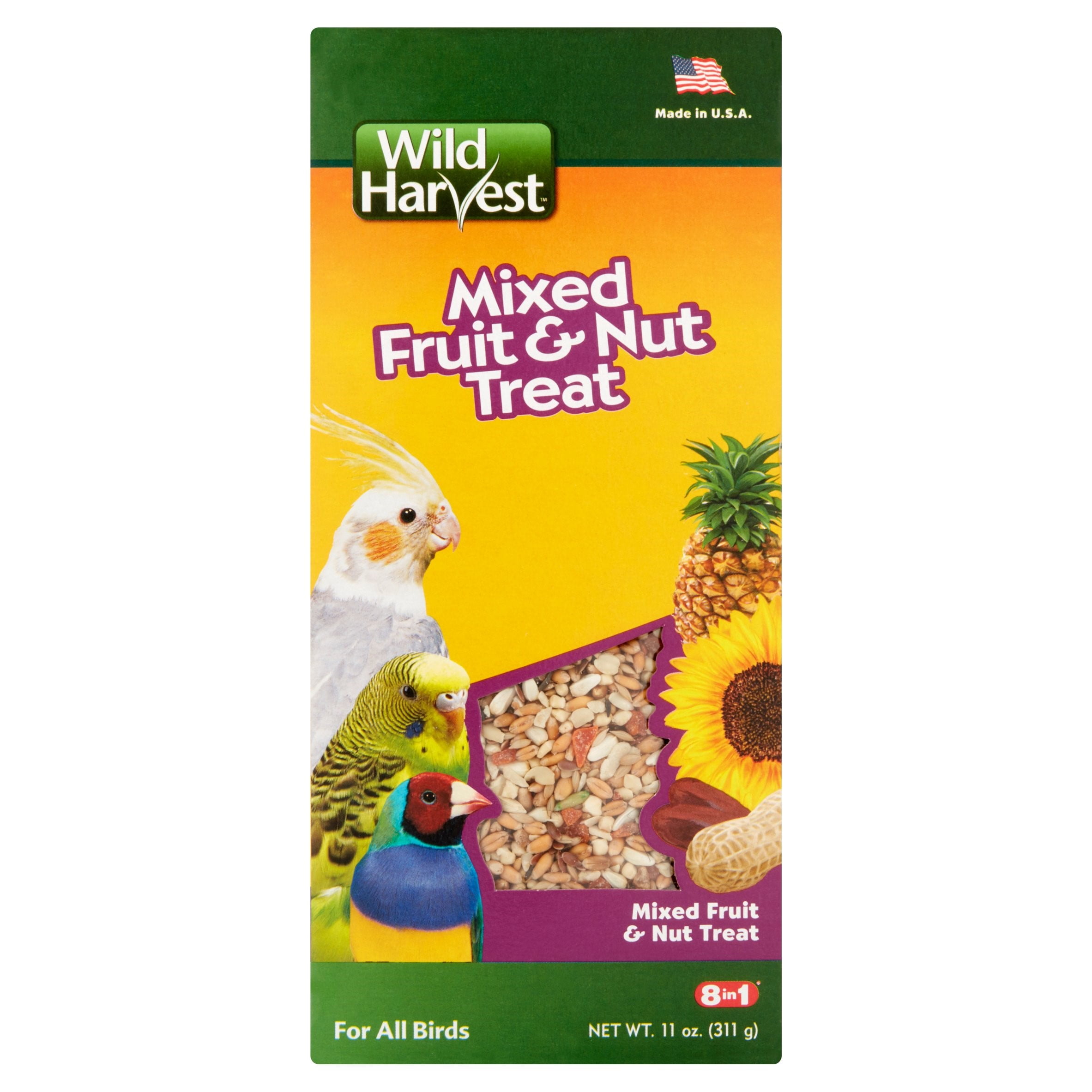
Nourishing Feathered Friends: Crafting the Perfect Natural Food Mix for Exotic Birds
Exotic birds, with their vibrant plumage, captivating songs, and intelligent personalities, bring a unique joy to the lives of their owners. However, ensuring their well-being requires a deep understanding of their nutritional needs. While commercial bird foods offer convenience, many bird enthusiasts are turning to natural food mixes to provide their feathered companions with a more wholesome and species-appropriate diet.
This article delves into the world of natural food mixes for exotic birds, exploring the benefits, essential components, preparation methods, and considerations for tailoring the mix to specific bird species.
The Allure of Natural Food Mixes
Natural food mixes aim to replicate the diet that exotic birds would consume in their native habitats. This approach offers several compelling advantages:
-
Enhanced Nutritional Value: Natural ingredients are packed with essential vitamins, minerals, antioxidants, and enzymes that are often lacking or diminished in processed commercial foods.
-
Improved Digestive Health: Whole foods, rich in fiber, promote healthy digestion and prevent common digestive issues in birds.
-
Mental Stimulation: Foraging for food is a natural behavior for birds. Natural food mixes encourage this behavior, providing mental enrichment and preventing boredom.
-
Reduced Risk of Allergies and Sensitivities: Natural ingredients are less likely to contain artificial additives, preservatives, and fillers that can trigger allergic reactions or sensitivities in some birds.
-
Greater Control Over Ingredients: Creating your own mix allows you to select high-quality, organic, and ethically sourced ingredients.
Key Components of a Natural Food Mix
A well-balanced natural food mix should incorporate a variety of ingredients to meet the diverse nutritional needs of exotic birds:
-
Seeds: Seeds form the foundation of many bird diets, providing essential fats, carbohydrates, and protein. However, it’s crucial to select a variety of seeds and offer them in moderation, as some seeds are high in fat.
-
Suitable Seeds: Sunflower seeds (in moderation), safflower seeds, millet, canary seed, hemp seeds, flax seeds, chia seeds, and quinoa.
-
Preparation: Seeds can be offered whole or sprouted. Sprouting seeds increases their nutritional value and digestibility. To sprout seeds, soak them in water for 8-12 hours, then rinse and drain them thoroughly. Keep them in a sprouting container, rinsing and draining them twice daily, until small sprouts appear.
-
-
Nuts: Nuts are an excellent source of healthy fats, protein, and minerals. However, they should be offered in moderation due to their high-fat content.
-
Suitable Nuts: Almonds, walnuts, pecans, macadamia nuts, and Brazil nuts (all unsalted and unsweetened).
-
Preparation: Nuts can be offered whole, chopped, or ground. Soaking nuts for a few hours can make them easier to digest.
-
-
Fruits: Fruits provide essential vitamins, minerals, antioxidants, and natural sugars.
-
Suitable Fruits: Apples, bananas, berries (strawberries, blueberries, raspberries), grapes, melons, mangoes, papayas, and kiwi.
-
Preparation: Fruits should be thoroughly washed and cut into bite-sized pieces. Remove any seeds or pits that may be toxic.
-
-
Vegetables: Vegetables are rich in vitamins, minerals, fiber, and antioxidants.
-
Suitable Vegetables: Leafy greens (kale, spinach, romaine lettuce), carrots, broccoli, bell peppers, sweet potatoes, peas, and corn.
-
Preparation: Vegetables should be thoroughly washed and cut into bite-sized pieces. Some vegetables, such as sweet potatoes and carrots, can be lightly steamed or baked to improve digestibility.
-
-
Legumes: Legumes are an excellent source of protein, fiber, and minerals.
-
Suitable Legumes: Cooked beans (black beans, pinto beans, kidney beans), lentils, and chickpeas.
-
Preparation: Legumes must be thoroughly cooked to remove toxins and improve digestibility. Avoid offering raw or undercooked legumes.
-
-
Grains: Whole grains provide carbohydrates, fiber, and some protein.
-
Suitable Grains: Cooked brown rice, quinoa, oats, and barley.
-
Preparation: Grains should be thoroughly cooked and offered in moderation.
-
-
Other Beneficial Additions:
-
Herbs: Herbs like parsley, cilantro, basil, and oregano can add flavor and provide additional nutrients.
-
Flowers: Edible flowers like rose petals, nasturtiums, and dandelions can add color and variety to the mix.
-
Spirulina and Bee Pollen: These superfoods are rich in vitamins, minerals, and antioxidants.
-
Calcium Supplement: Birds require adequate calcium for strong bones and egg production. A calcium supplement, such as cuttlebone or calcium carbonate powder, should be offered.
-
Tailoring the Mix to Specific Bird Species
The ideal composition of a natural food mix will vary depending on the specific needs of the bird species. Consider the following factors:
-
Size: Larger birds require larger portions and can handle larger pieces of food.
-
Dietary Preferences: Some birds are primarily seed-eaters, while others prefer fruits, vegetables, or insects.
-
Activity Level: Active birds require more calories than sedentary birds.
-
Health Conditions: Birds with specific health conditions, such as diabetes or kidney disease, may require dietary modifications.
Here are some general guidelines for tailoring natural food mixes to different types of exotic birds:
-
Parrots (e.g., Macaws, Cockatoos, Amazons): These birds require a diverse mix of seeds, nuts, fruits, vegetables, and legumes. They also benefit from foraging opportunities.
-
Parakeets (e.g., Budgies, Cockatiels): These birds thrive on a mix of small seeds, fruits, and vegetables. Millet sprays can be offered as a treat.
-
Finches and Canaries: These birds prefer a mix of small seeds, such as millet, canary seed, and hemp seeds. They also need access to fresh greens and a calcium source.
-
Softbills (e.g., Toucans, Mynahs): These birds require a diet rich in fruits, vegetables, and insects. Commercial softbill diets can be supplemented with natural ingredients.
Preparing and Storing the Mix
-
Source High-Quality Ingredients: Choose organic, ethically sourced ingredients whenever possible. Ensure that all ingredients are fresh and free from mold or pests.
-
Wash and Prepare Ingredients: Thoroughly wash all fruits and vegetables. Chop ingredients into bite-sized pieces. Cook legumes and grains according to package directions.
-
Mix Ingredients: Combine the ingredients in a large bowl, adjusting the proportions to suit the specific needs of your bird species.
-
Store the Mix: Store the mix in an airtight container in a cool, dry place. It is best to prepare the food fresh daily. If storing the food, use it within a few days to prevent spoilage.
Important Considerations
- Consult with an Avian Veterinarian: Before making significant changes to your bird’s diet, consult with an avian veterinarian. They can help you determine the specific nutritional needs of your bird and identify any potential health concerns.
- Introduce New Foods Gradually: Introduce new foods gradually to allow your bird’s digestive system to adjust.
- Monitor Your Bird’s Health: Monitor your bird’s weight, appetite, and droppings for any signs of illness or nutritional deficiencies.
- Provide Fresh Water Daily: Always provide your bird with fresh, clean water.
By crafting a natural food mix that meets the specific needs of your exotic bird, you can provide them with a diet that supports their health, happiness, and longevity.
I hope this article is helpful! Let me know if you’d like any modifications or further information.

